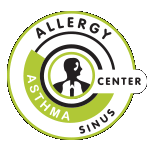Ineffective OTC Decongestants
Avoid Wasting Time, Money and Treatment
Back in the day there were three main options for over-the-counter oral decongestants: phenylpropanolamine (PPA), pseudoephedrine (PSE), and phenyephrine (PHE). PPA was removed from the market after it was associated with several cases of stroke, probably from people abusing it as a “diet aid”. PSE is still available, but has been moved behind the counter and the amount available for purchase is limited due to its use in illicit methamphetamine production. This leaves us with PHE which has been included in an increasing number of OTC medications since the restrictions on PSE went in to effect. Unfortunately, a new study suggests that oral PHE is not effective as a decongestant.
Researchers looked at several different doses of oral PHE, from 10-40mg every four hours, and compared them to placebo. While there were some short-term increases in heart rate and blood pressure with PHE, there was no improvement in nasal congestion from PHE compared to placebo.
First, you need to be a label reader. All OTC medications will contain a list of their active ingredients.
So what should you do with this information? First, you need to be a label reader. All OTC medications will contain a list of their active ingrediants. If one you are using or considering contains PHE, you should consider an alternate preparation. Second, for control of nasal congestion, consider switching from oral medications to nasal sprays. Nasal decongestant sprays such as Afrin, Neosynephrine, etc. are very effective for short term relief of severe nasal congestion. However, if they are used for more than a few days they will cause rebound nasal congestion-making your problem worse than when you started. Nasal steroid spays such as Flonase, Nasacort, etc are also very effective at controlling nasal congestion without causing rebound. They do take some time to work, though. A good strategy is to start by combining both types of sprays. After three days, drop the nasal decongestant spray and continue the nasal steroid. This provides good immediate relief, minimizes rebound, and gives the nasal steroid some time to work.
Finally, if all of this isn’t helpful, if you are on year-round medications or if you are having complications from your allergies, contact a board-certified allergist for help.




